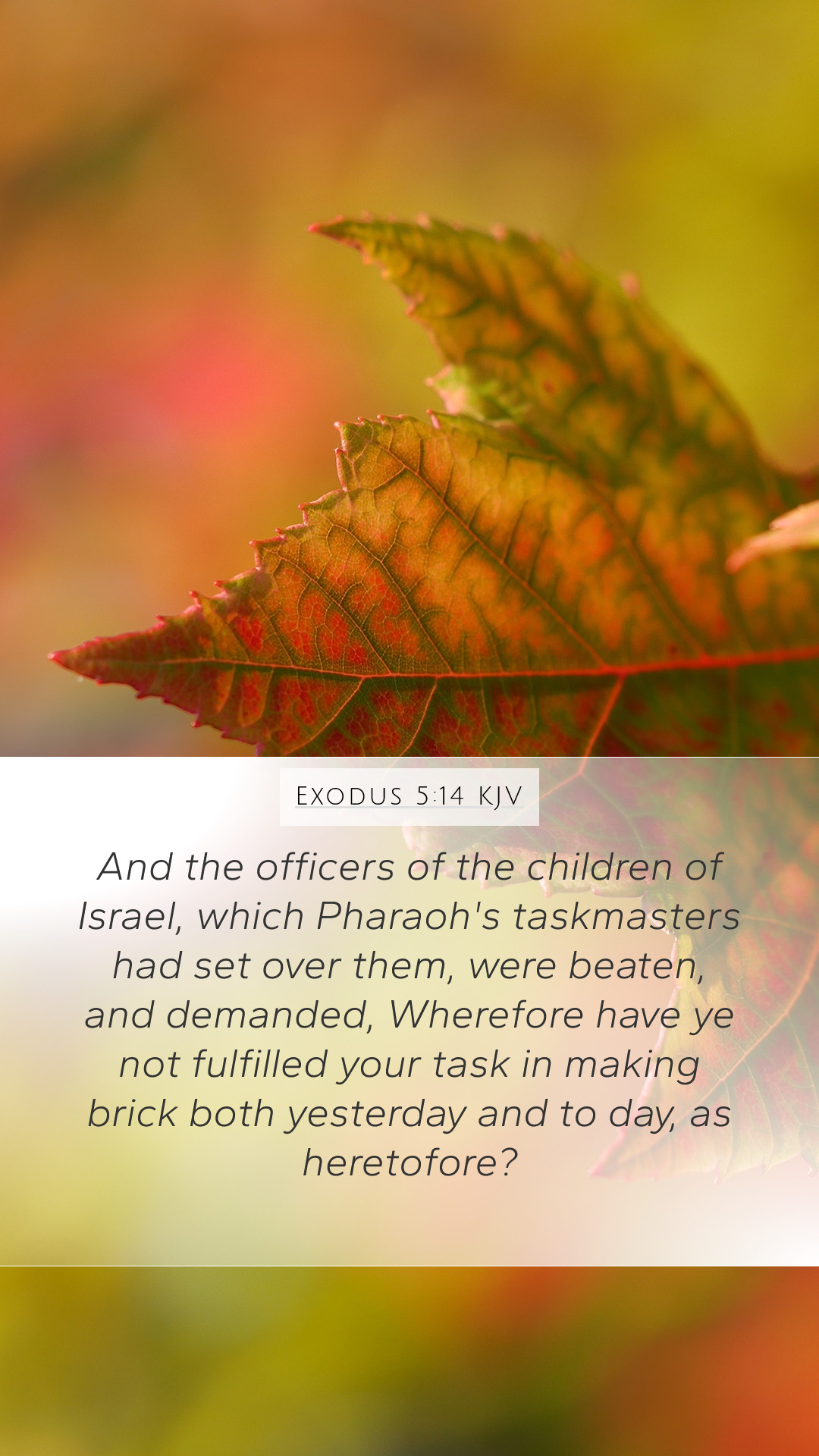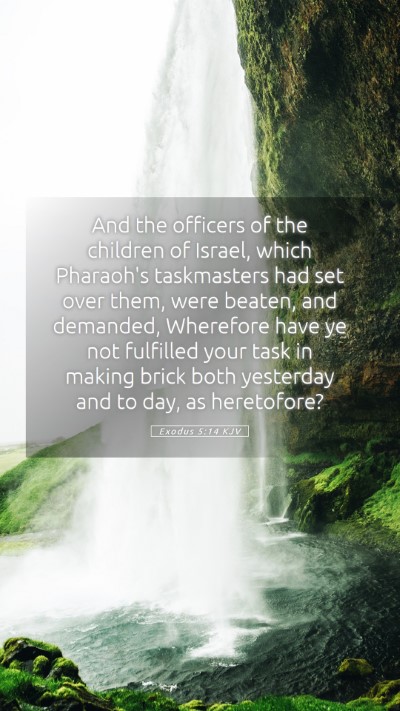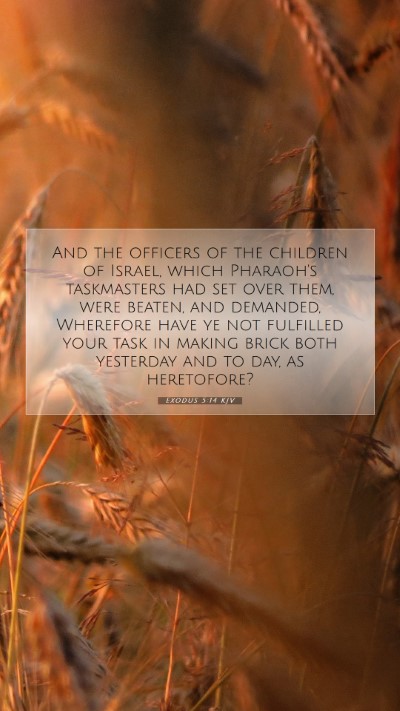Exodus 5:14 - Bible Verse Meaning and Commentary
Exodus 5:14 states, "And the officers of the children of Israel, which Pharao's taskmasters had set over them, were beaten, and demanded, Wherefore have ye not fulfilled your task in making brick both yesterday and to day as heretofore?" This verse reflects the oppression faced by the Israelites under Egyptian bondage and provides rich insights for biblical exegesis.
The verse highlights the harsh treatment of the Israelite foremen who were responsible for overseeing the laborers tasked with brick making. Their punishment signifies a deeper theological reflection on suffering, authority, and the struggle for freedom. Here is a summary of the verse meaning based on public domain commentaries.
Understanding the Context
-
Historical Context:
Under the leadership of Moses, the Israelites had approached Pharaoh to request freedom, which only intensified their oppression. Matthew Henry points out that the Israelites’ plea led to increased oppression as Pharaoh was enraged and refused to yield to their demands.
-
Role of Taskmasters:
The taskmasters were appointed by Pharaoh to enforce the labor demands. Albert Barnes explains that the Egyptians used harsh methods to maintain control over the Israelite people, highlighting the cruelty embedded in the system of slavery.
-
Resistance and Hardship:
Adam Clarke elaborates on the oppression faced by the Israelite officers, who, caught between Egyptian authorities and their fellow Israelites, bore the brunt of Pharaoh’s wrath, symbolizing a dual struggle against internal and external pressures.
Theological Themes
-
Suffering and Trials:
This verse illustrates the concept of suffering in the life of God’s people. It serves as a reminder that trials often precede deliverance. The punishment of the foremen emphasizes the reality of suffering as they strive for liberation.
-
Authority and Oppression:
The verse raises questions about authority and the human condition. Pharaoh’s oppressive regime reflects the broader theme of human authority against divine purpose. Matthew Henry elucidates on how God often works through such oppression, which sets the stage for His ultimate deliverance.
-
God’s Promises:
Despite the hardship, the Israelites are reminded of God’s covenant promises. Barnes comments on the assurance that God will deliver His people, fostering hope amidst despair.
Application of the Verse
The challenges faced by the Israelites resonate with personal struggles today. This verse teaches how the faithful may endure trials but must rely on God’s promises of eventual deliverance. Albert Barnes emphasizes the need for perseverance in faith regardless of present suffering.
Relevant Cross-References
- Exodus 1:14: Further elaborates on the harsh treatment of the Israelites.
- Psalm 105:25: Reflects on the hardening of hearts leading to oppression.
- Romans 8:18: Connects present sufferings with future glory.
Conclusion
In summary, Exodus 5:14 serves as a profound reminder of the struggles faced by those who seek freedom and justice. Through interpretation and commentary, we find encouragement to navigate our own trials with faith.
This passage invites deeper investigation and understanding, guiding us in our personal Bible study insights and theological reflections.
Readers seeking Bible verse meanings, Bible verse interpretations, and Bible verse commentary are encouraged to explore the nuances of Scripture and its application to daily life.


